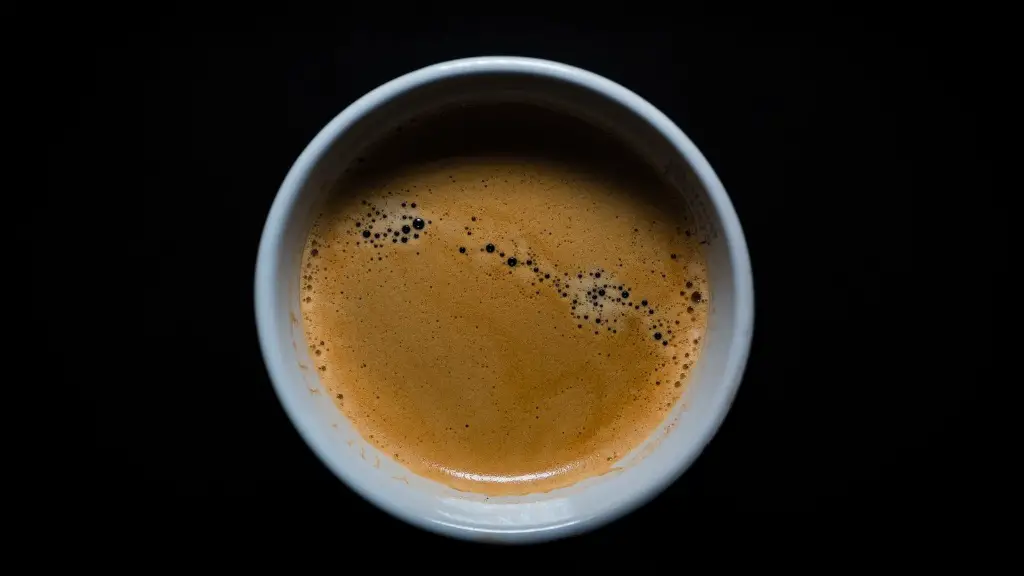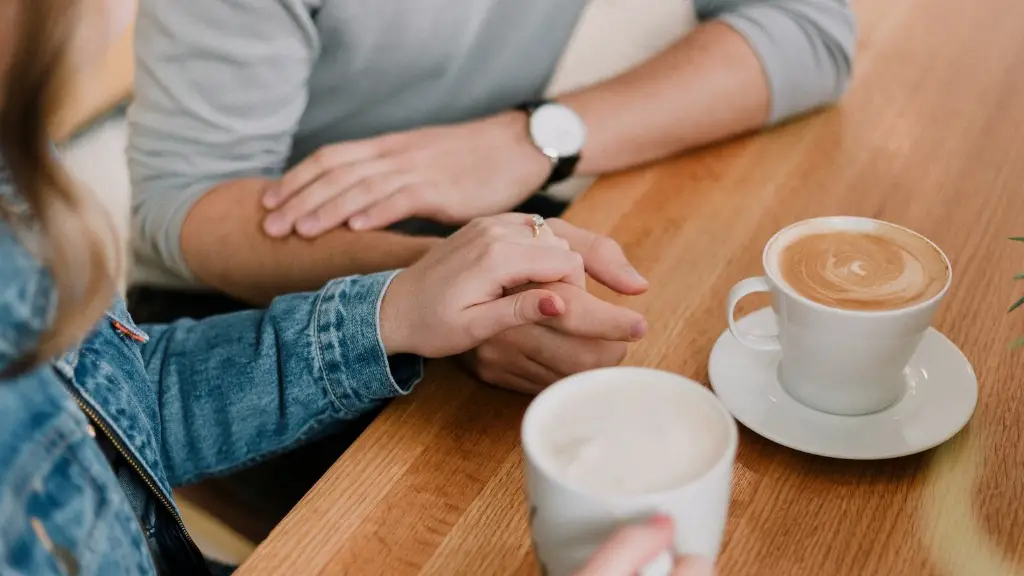When considering whether we should take melatonin after drinking coffee, it is important to consider both the effects of taking melatonin and the effects of consuming caffeine. Caffeine stimulates the central nervous system, while melatonin is a hormone which induces sleep. While both have their benefits, there are potential negative consequences to combining the two substances.
Many experts agree that it is not ideal to take melatonin after drinking coffee. Caffeine is a stimulant, and melatonin is a sedative. Taking the two together can lead to opposing effects and may make one more susceptible to side effects. Melatonin is known to cause drowsiness and grogginess, and mixing it with caffeine can increase this feeling. Additionally, the effects of caffeine can overpower the effects of melatonin and make it less effective as a sleep aid.
Research has also shown that taking melatonin after drinking coffee can disrupt normal sleep patterns. A 2003 study conducted on lab rats showed that when the animals were exposed to melatonin after ingesting caffeine, they had decreased levels of melatonin in the blood and the animals did not enter a deep sleep when expected. Taking melatonin with caffeine can lead to a disruption in normal sleep patterns which can cause fatigue and difficulty concentrating during the day.
Side effects of taking melatonin after drinking coffee can also include headaches, dizziness and nausea. If caffeine is taken too late in the day–which often happens when taking melatonin at night–it can also interfere with natural circadian rhythms and make one more prone to insomnia and other sleep disorders.
Taking melatonin and caffeine together can also lead to an impaired ability to drive or operate machinery. Since both of these substances are known to cause drowsiness and impaired alertness, combining them can significantly increase the risk of causing an accident or injury. Therefore it is not recommended that any tasks that require alertness and coordination be undertaken while taking melatonin with caffeine.
In conclusion, while both melatonin and caffeine have their benefits, taking melatonin after drinking coffee is not recommended. It can increase the likelihood of side effects and disrupt normal sleep patterns. It is also unsafe to drive or operate machinery while taking this combination. Therefore, it is best to avoid taking melatonin with caffeine.
How Melatonin and Caffeine Interact
Caffeine and melatonin have opposing effects in the body. Caffeine is a stimulant, while melatonin is a sedative. This means that when the two are taken together, the effects can be amplified and lead to a greater risk of side effects. Research has shown that consuming caffeine after taking melatonin can reduce the effects of the hormone and make it less effective as a sleep aid.
It is not known exactly how the two interact with each other in the body. Scientists believe that caffeine in combination with melatonin may inhibit the release of certain neurotransmitters that help induce drowsiness and sleep. Additionally, caffeine has been shown to reduce the levels of melatonin in the bloodstream and this can have a further impact on sleep patterns.
Mixing melatonin and caffeine can also interfere with the body’s natural circadian rhythm. Circadian rhythms are responsible for regulating a person’s sleep-wake cycle and the body’s internal clock. If this internal clock is disrupted, it can lead to difficulty falling and staying asleep, which can in turn lead to fatigue and difficulty concentrating during the day.
Expert Advice on Taking Melatonin and Caffeine Simultaneously
Experts recommend that people who are considering taking melatonin after drinking coffee should consult their physician first. Doctors can provide insight into individual health concerns and provide guidance on how best to proceed. Generally, it is recommended to avoid consuming melatonin and caffeine together.
If it is necessary to take both substances together, doctors generally recommend limiting caffeine consumption. It is also important to avoid taking caffeine too late in the day as this can interfere with natural circadian rhythms. Additionally, it is important to follow all recommended dosages of both melatonin and caffeine.
If individual reactions to taking melatonin after drinking coffee are experienced, such as headaches, dizziness or nausea, medical advice should be sought. It is also important to assess any potential risks and the potential effects of the combination before taking melatonin and caffeine together.
Preventative Measures to Take When Using Caffeine and Melatonin
If one is taking melatonin after drinking coffee, there are a few simple preventative measures that can be taken to reduce the potential risk of negative side effects. It is important to avoid taking too much caffeine and to only take the recommended dose of both melatonin and caffeine.
It is also a good idea to limit caffeine consumption before bedtime. Studies have shown that caffeine can interfere with sleep and cause difficulty falling and staying asleep. Finally, it is important to assess the potential risks of taking melatonin and caffeine together before taking them.
If any adverse reactions occur when taking melatonin and caffeine together, medical advice should be sought. Additionally, it is important to discuss any changes to medication dosages with a doctor before making any adjustments.
What Should You Consider Before Taking Melatonin & Caffeine
Before taking melatonin and caffeine together, it is important to consider the potential risks and side effects. It is also important to consider the recommended dosages for both substances. Taking too much of either substance can lead to adverse reactions and it is important to stick to recommended dosages in order to reduce the potential risk of side effects.
It is also important to assess the effects of taking melatonin and caffeine together on any existing health conditions. People with pre-existing health conditions should speak to their doctor before taking these substances together. Additionally, it is important to consider any medications or supplements being taken, as these could interact with either melatonin or caffeine and exacerbate side effects.
When to Avoid Taking Melatonin & Caffeine Together
There are certain situations in which it is important to avoid taking melatonin and caffeine together. It is not recommended to take melatonin and caffeine if one is pregnant or breastfeeding, as the interaction could cause adverse reactions. Additionally, it is not recommended to take this combination if one is operating heavy machinery, driving, or engaging in any other activity that requires concentration as the combination could impair alertness.
It is also important to avoid taking melatonin and caffeine late in the day as this can interfere with natural circadian rhythms and make it more likely to experience insomnia and other sleep disorders. Finally, it is important to keep in mind that combining melatonin and caffeine does not guarantee a good night’s sleep, and the two should not be used in place of good sleep hygiene.
How Long Should You Avoid Taking Melatonin & Caffeine
It is recommended to avoid taking melatonin after drinking coffee for a set period of time. The length of this period will vary depending on the individual and their reaction to taking the combination. If one experiences any adverse reactions, such as headaches, dizziness, or nausea, then it is best to avoid taking the combination.
It is also important to take a break from the combination if the effects of either substance are disrupted. For example, if caffeine is interfering with the effects of melatonin, then it is best to stop taking them together for a set period of time. Additionally, it is important to take a break from melatonin and caffeine if one is experiencing disruptions to the normal sleep-wake cycle.
It is recommended to avoid taking melatonin and caffeine together for a period of at least two weeks. During this time, it is best to assess any changes to sleep patterns and any potential side effects, before deciding to take the combination again.





